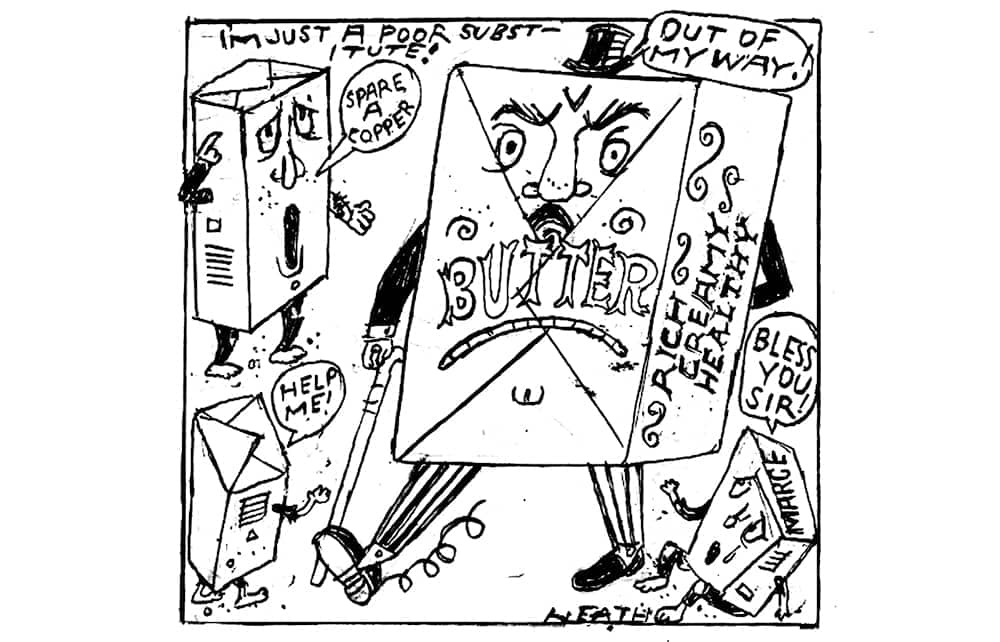Butter was not a major part of my childhood. In fact, I don’t remember it ever being in our fridge. My parents were subject to the saturated fat scaremongering of the 1980s, and consequently believed that butter was the enemy.
Instead, we had spread: margarine, rebranded as a cholesterol-busting alternative to heart-clogging butter. But spread wasn’t so bad. It lubricated my sandwiches and melted on my toast. Spread was everyday. Butter was for high days and holidays. Otherwise, we were all certain to die young.

Butter has always been a bellwether of the British psyche. We want luxury, but only every so often, and only so much – and we don’t want to pay too much for it. As such, butter’s popularity here has waxed and waned; it has been both aspirational and looked down upon. It was reserved for the poorer, farming classes until the Regency period, but then suffered from fear of spoilage during the Victorian era. It was subject to rationing during the world wars. Meanwhile, the 1970s saw butter divide opinion: for many, the Mediterranean diet gave olive oil supremacy, but devotees of the Atkins and keto diets couldn’t get enough of the stuff.
Butter has recently seen a resurgence in popularity. The studies on which the scaremongering was based have been debunked, and instead the benefits of whole foods such as butter are now lauded. At the same time, we are living through the rise of plant-based diets, as well as a cost-of-living crisis, which means butter has never been more expensive.
We’ve all seen our shopping baskets balloon in price lately. But those increases haven’t been uniform. Supermarkets caused a social media storm when they began security-tagging the Danish spread Lurpak as they do sirloin steaks, because it was suddenly a high-value item and therefore a shoplifting risk.








Comments
Join the debate for just £1 a month
Be part of the conversation with other Spectator readers by getting your first three months for £3.
UNLOCK ACCESS Just £1 a monthAlready a subscriber? Log in